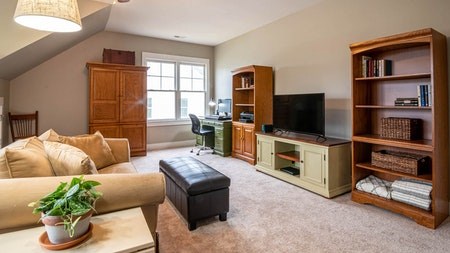Converting commercial spaces into residential units is nothing new in South Africa.
However, the ongoing lockdown conditions obliged companies to recognise that a remote workforce is viable and can also result in improved cost and productivity efficiencies, says Malusi Mthuli; KZN Provincial Head: FNB Commercial Property Finance.
WATCH : Mortgage bonds and how consumers can save money
Impetus
He says that one of the driving forces behind this ongoing trend is that property funds continue to offload significant portions of their office stock.
“Most of the funds now consider office stock less viable from a returns perspective than properties in most other sectors. Fortunately, this offloading of office space is opportune given the significant upswing in demand for well-located residential properties that match the evolving lifestyles of the working population,” says Mthuli.
“The increased demand for residential properties is due to several factors. First is the record-low interest rates as the National Treasury sought to minimise the impact of Covid-19. Secondly, the pandemic also delivered benefits on the supply side of the residential property equation as developers and investors have seen valuable opportunities in converting commercial property to residential space.
“The prices of empty office blocks are lower than ever. The costs of converting them to residential units are far lower than building them from scratch. The utilities infrastructure is already in place, and local authorities are looking to partner with developers to leverage inner-city residential projects to address growing social housing backlogs,” says Mthuli.
Partnerships
He says the government is now participating in property sector public private partnerships, with solid service level agreements (SLAs) coming into effect between social housing agencies and developers for grant-based funding for up to 70% of the costs involved for qualifying social housing projects.
Mthuli says that most banks are following the government's lead. As a result, many are more willing than in the past to provide funding for the remaining 30% of development capital requirements. Banks are also offering more relaxed home loan qualification criteria and are willing to consider loans to qualifying applicants of 100% or even 110% of value.
Caution
However, he says that caution is required - as with any property development.
Firstly, any developer or investor who wants to get involved in commercial to residential conversions must fully understand their target market and prospective buyers. They then need to design and price the units accordingly.
Secondly, the age-old adage of location, location, location applies in this situation. Fortunately, most vacant office blocks that are available are very well located for conversions that meet the growing demand among younger employees. They essentially need enough space to be able to work on their laptops on most days. They also need to be relatively close to the office for days when they’re needed at work.
Balance
Mthuli says the most successful conversion projects are those that have achieved the right balance between living and lifestyle spaces.
“Most buyers of these small, high-density residential units either prefer to use a vehicle as little as possible or don't want to own one. Their primary consideration is the ease with which they can live the lifestyle they desire without having to commute long distances. Including convenience and lifestyle stores in the development, or a location with easy access to public transport, is a major factor in successful conversion projects,” says Mthuli.
Sustainability
Some would-be investors wonder whether the trend is sustainable. After all, the work from home trend is now switching to a hybrid work arrangement for most companies, which means office space will again be required. In addition, interest rates are rising, which could dampen demand for - and access to - home loans.
“These are both valid concerns, but it’s highly unlikely that demand for office space will ever be what it was a decade or two ago,” says Mthuli.
“Hybrid work arrangements require much less office space than full office-based staff complements. Although interest rates are rising, it will take some time until the cost of servicing a home loan is so high that it makes paying rent a more appealing proposition.”
He believes the commercial to residential conversion trend is here to stay and that it will accelerate in the medium term.
“For investors and developers who do their homework and who are keen to partner with local authorities, there is potential for sustainable success,” says Mthuli.
Writer : Sarah-Jane Meyer


